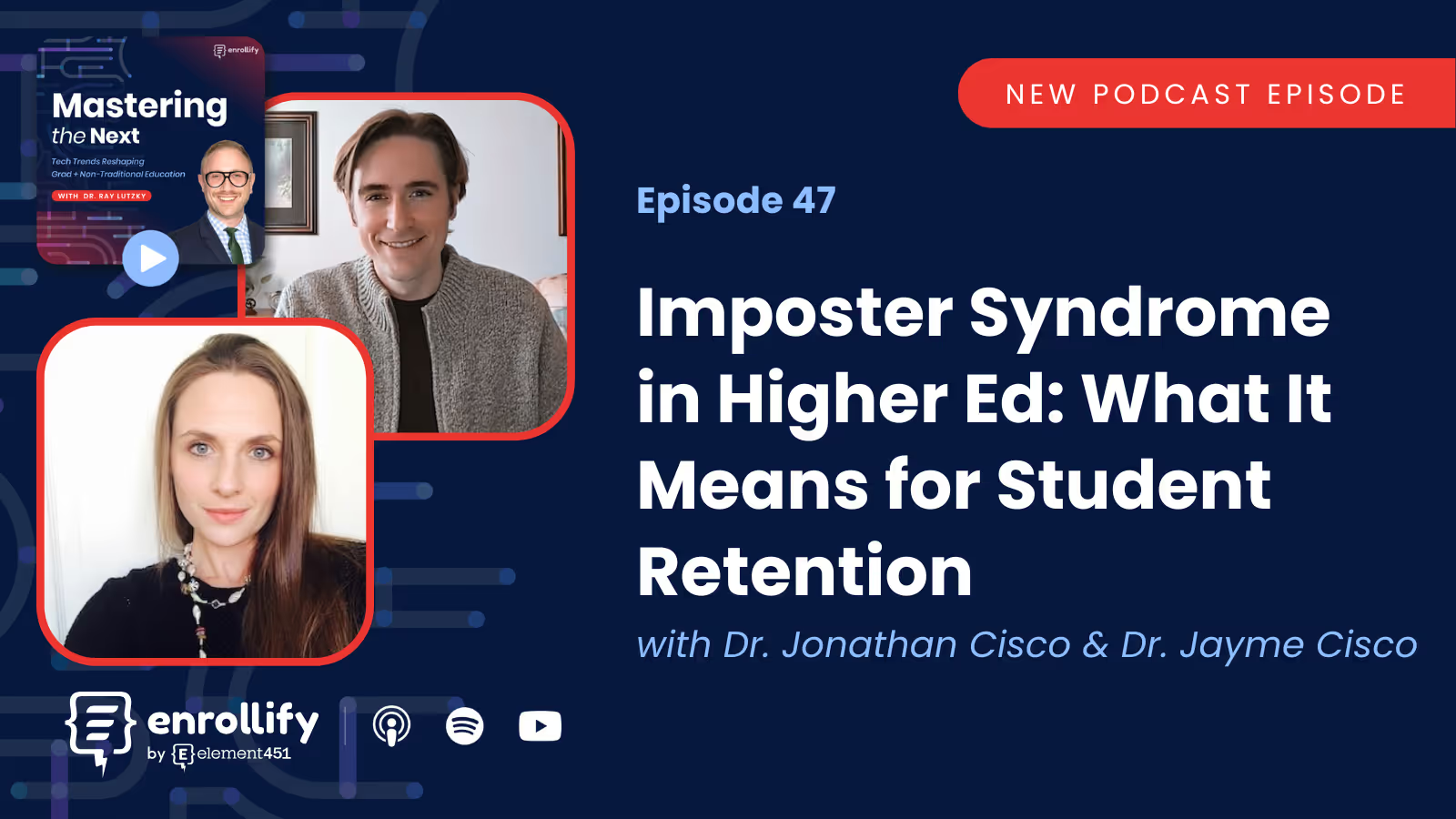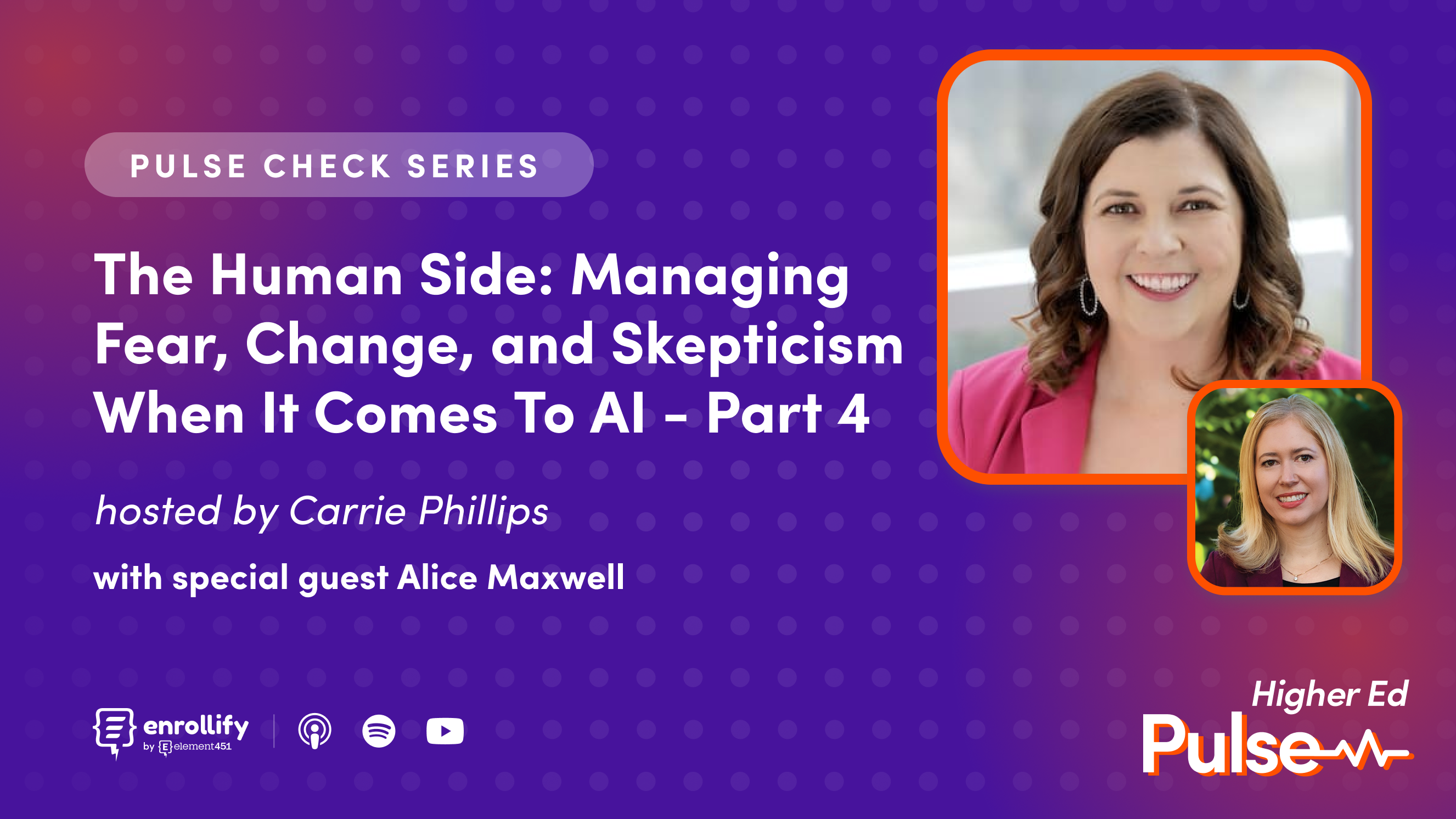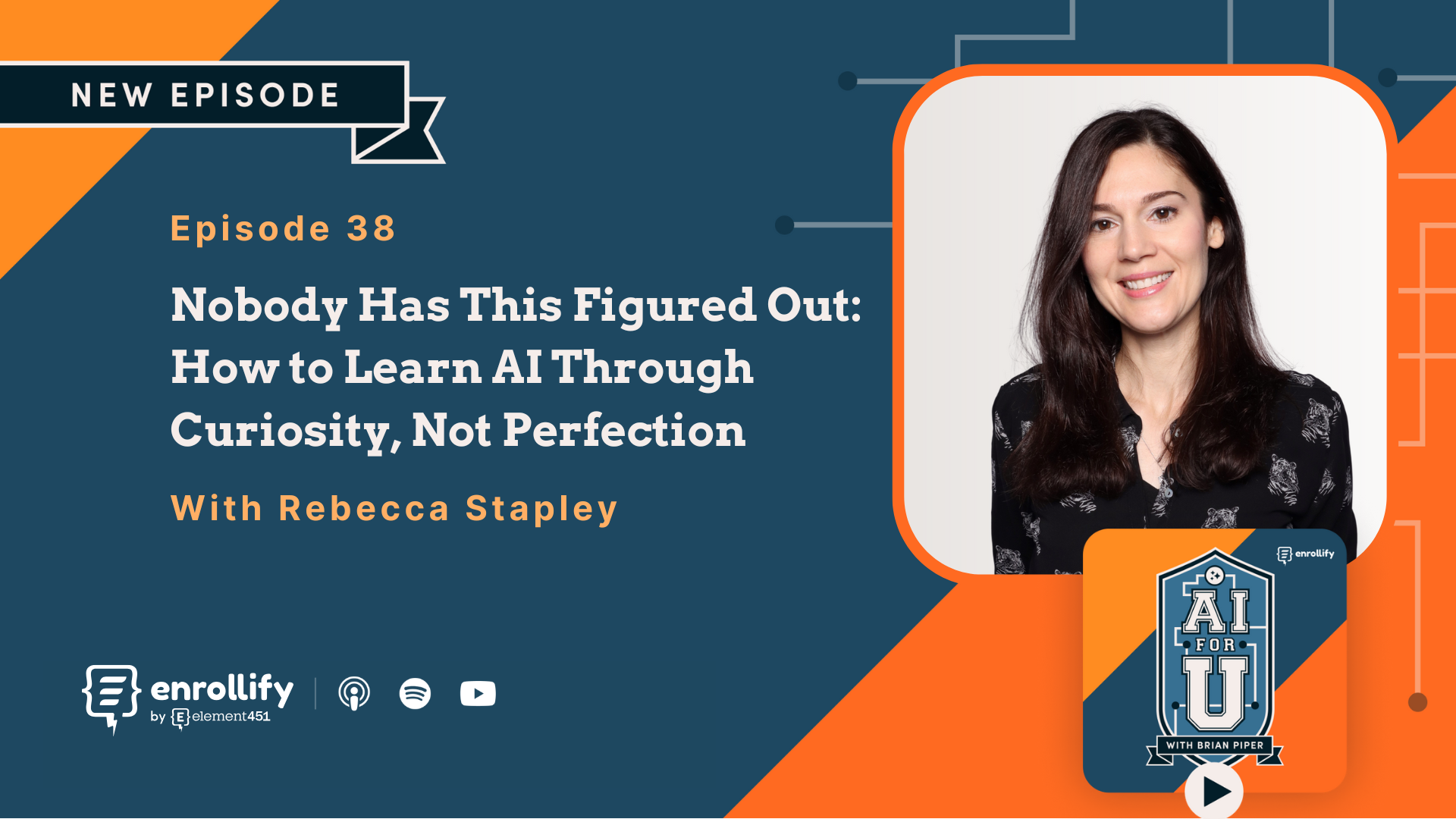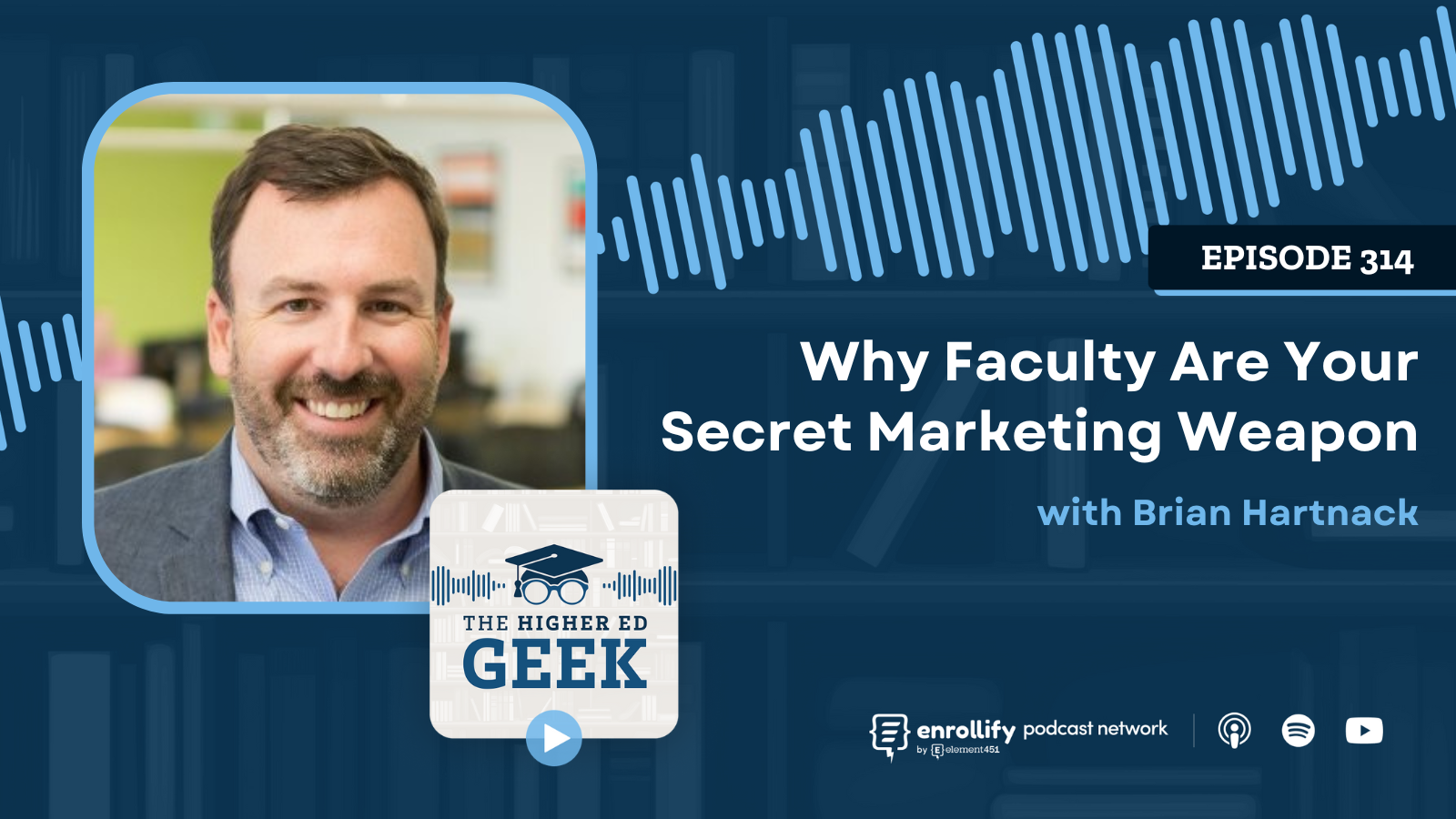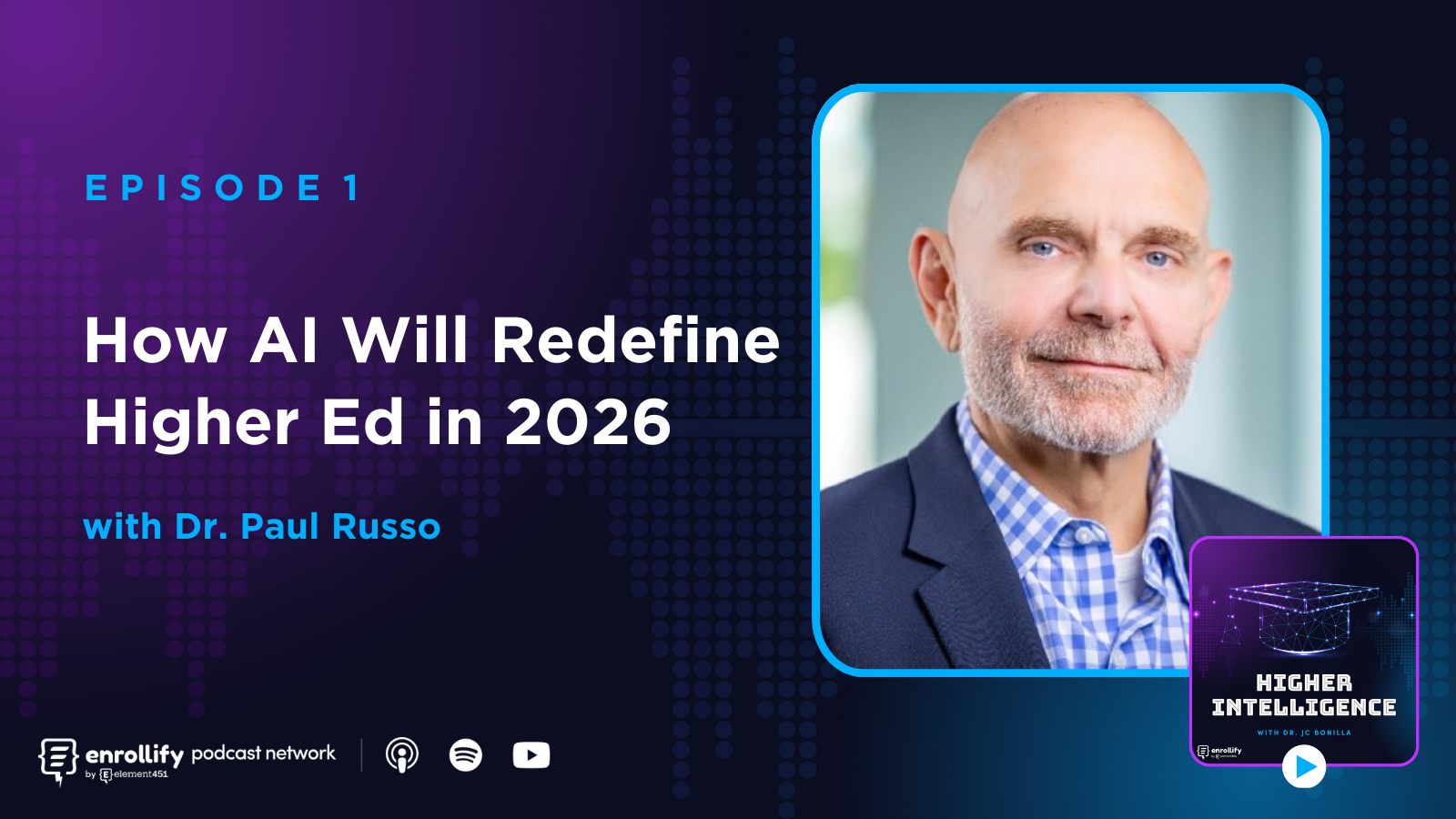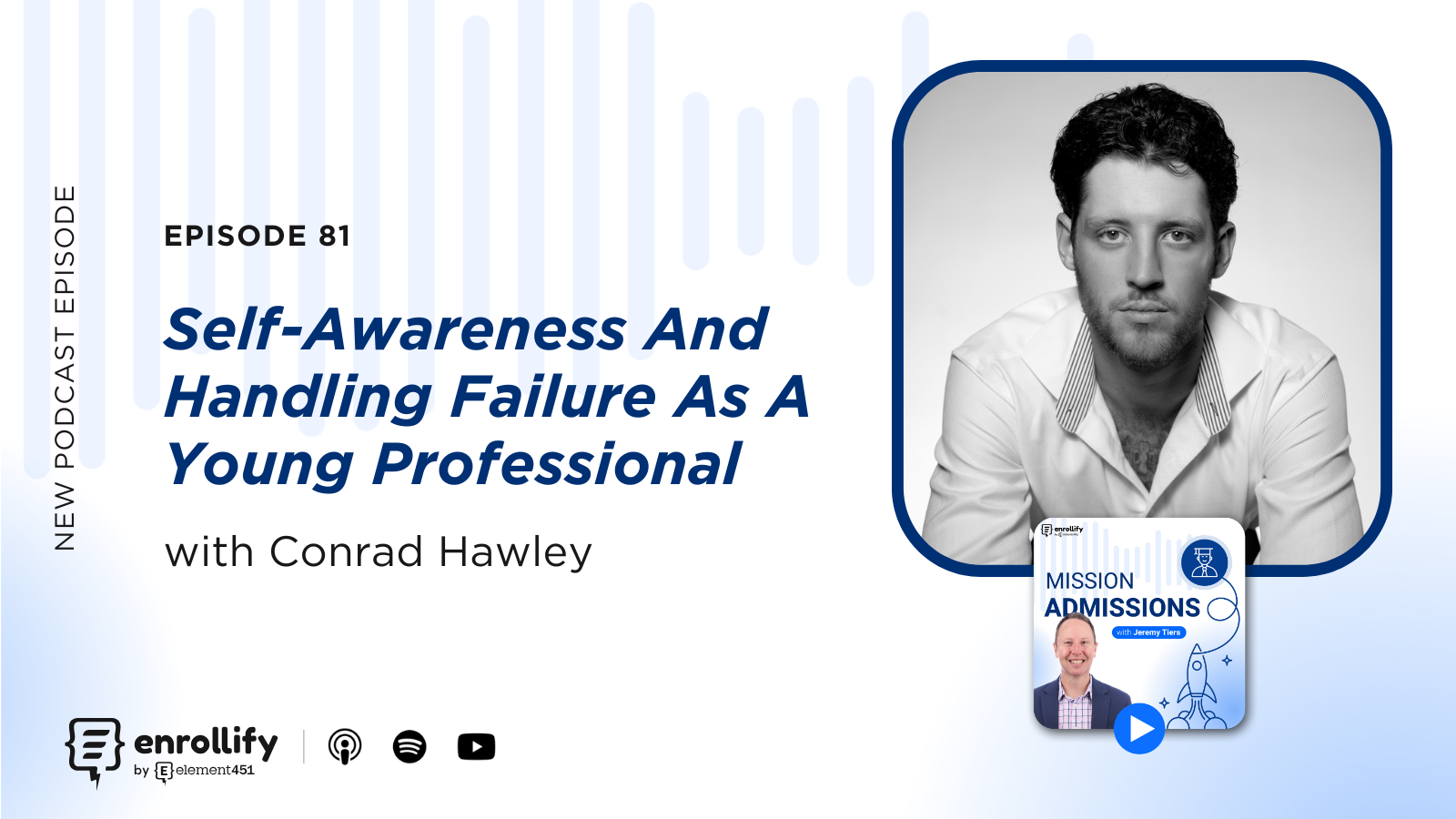About the Episode
Got a story to tell? An innovative idea to share? Fill out our guest nomination form and let's chat!
About the Episode:
A student’s journey through graduate education is filled with unique challenges that extend far beyond academic rigor. In this episode, we're exploring how the psychological impacts of graduate school, like the impostor phenomenon, affect graduate students. Ray is joined by Dr. Jonathan Cisco and Dr. Jayme Cisco, Co-Founders of The Grad Academy, whose groundbreaking work is transforming how institutions approach graduate student development.
Key Takeaways
- Imposter phenomenon is a major psychological barrier for graduate students and is linked to higher rates of emotional distress and attrition.
- The Grad Academy is a research-backed workshop designed to combat imposter feelings through academic skill-building and community support.
- Many grad students don’t struggle with content — they struggle with reading, writing, organizing research, and navigating unspoken academic norms.
- Over 1,500 students have completed the Grad Academy, with measurable improvements in confidence, performance, and persistence.
- Institutions can dramatically improve student success and retention by offering structured programs that address both skills and mindset.
What Is the Imposter Phenomenon and Why Does It Matter in Grad School?
Jonathan and Jayme Cisco open the episode by unpacking the imposter phenomenon — the internal experience of believing one’s success is undeserved and fearing exposure as a fraud. While it’s often referred to as “imposter syndrome,” the Ciscos prefer “phenomenon” to underscore that this is not a pathology, but a reaction to systemic and cultural conditions — especially common in academic environments.
The imposter phenomenon is uniquely potent in graduate school. It manifests in behaviors like setting impossibly high standards, discounting praise, and attributing achievements to luck or external factors. And here’s the kicker: it most often affects high-achieving students. These are the students publishing early, winning awards — and still feeling like they’re faking it.
This persistent self-doubt doesn’t just make grad school harder — it can derail students emotionally, intellectually, and professionally. As Jonathan Cisco puts it, “These feelings don’t go away just because you achieve something — in fact, they can get worse.” That emotional weight can lead to anxiety, isolation, burnout, and even dropping out.
What’s Behind the Imposter Feelings in Graduate Education?
A big takeaway from the Ciscos’ research and experience is that most graduate students aren’t failing because they lack content knowledge — they’re struggling because no one taught them how to do graduate school. And even worse, no one talks about that.
The typical grad experience is full of unspoken assumptions: how to read a scholarly article, how to write for academic journals, how to contribute to seminar discussions. Students arrive assuming they should already know how to do these things — and when they struggle, they assume the problem is them. This mismatch between expectation and reality is one of the core triggers for imposter feelings.
Jonathan and Jayme Cisco describe the “imposter cycle”: a student sets out to prove they belong, does well, but dismisses their success. They raise the bar even higher — and the cycle continues. This is amplified in graduate environments where competition is embedded — from research assistantships to publication records — making students constantly compare themselves to their peers.
Another nuance? These feelings aren’t global — they’re domain-specific. A student may feel confident in one area of life but completely inadequate academically. Family background, being first-gen, or coming from an underrepresented group in academia can further intensify this.
What Is the Grad Academy and How Does It Help?
The Grad Academy is a powerful intervention that helps graduate students identify, understand, and overcome imposter phenomenon through a one-day intensive workshop. Developed out of Jonathan Cisco’s dissertation research, the program combines community building with practical academic skill training. And it works.
Held either in-person or via Zoom, the Grad Academy brings graduate students together for an immersive experience. The day includes personal storytelling, evidence-based strategies for reading and writing, research organization techniques, and candid conversations about the realities of academic life. The environment is intentionally emotional and open — it’s not a lecture, it’s a shared experience.
Jayme Cisco describes the workshop as a “cathartic” moment for many participants. Students often enter feeling isolated and overwhelmed — and leave feeling validated and equipped. In follow-up studies, participants showed a lasting reduction in imposter phenomenon, even a year later. More importantly, the experience gives students language to describe their struggles and tools to overcome them.
Graduate students across all disciplines — from political science to engineering — have praised the Grad Academy as transformative. And it’s not just anecdotal: 100% of participants have recommended it to others. For some, it’s even been a turning point that kept them from leaving their program.
How Can Institutions Use the Grad Academy to Improve Student Success?
Graduate student attrition is a persistent challenge across higher ed. According to the Ciscos, some disciplines see drop-out rates near 50%. That’s not just an academic issue — it’s a financial and ethical one. Universities invest heavily in recruiting, funding, and supporting grad students, only to lose them midstream due to emotional and cognitive overwhelm.
The Grad Academy provides a concrete, research-backed way to reduce those losses. The Ciscos partner with graduate schools, colleges, and departments to deliver tailored sessions for small groups (typically under 50 students). Whether it’s a campus-wide offering or a program-specific workshop, the structure remains the same: focused, supportive, and action-oriented.
Unlike piecemeal offerings — resume writing sessions, library tutorials, wellness workshops — the Grad Academy treats imposter phenomenon holistically. It helps students identify what’s really going on, normalizes the experience, and gives them a toolkit they can keep using throughout their careers. The results? Lower dropout rates, better student performance, and, perhaps most importantly, a graduate experience students can actually enjoy.
Connect With Our Host:
About The Enrollify Podcast Network: Mastering the Next is a part of the Enrollify Podcast Network. If you like this podcast, chances are you’ll like other Enrollify shows too!
Some of our favorites include The EduData Podcast and Generation AI.
Enrollify is produced by Element451 — the next-generation AI student engagement platform helping institutions create meaningful and personalized interactions with students. Learn more at element451.com.
Attend the 2025 Engage Summit!
The Engage Summit is the premier conference for forward-thinking leaders and practitioners dedicated to exploring the transformative power of AI in education.
Explore the strategies and tools to step into the next generation of student engagement, supercharged by AI. You'll leave ready to deliver the most personalized digital engagement experience every step of the way.
👉🏻 Register now to secure your spot in Charlotte, NC, on June 24-25, 2025!







